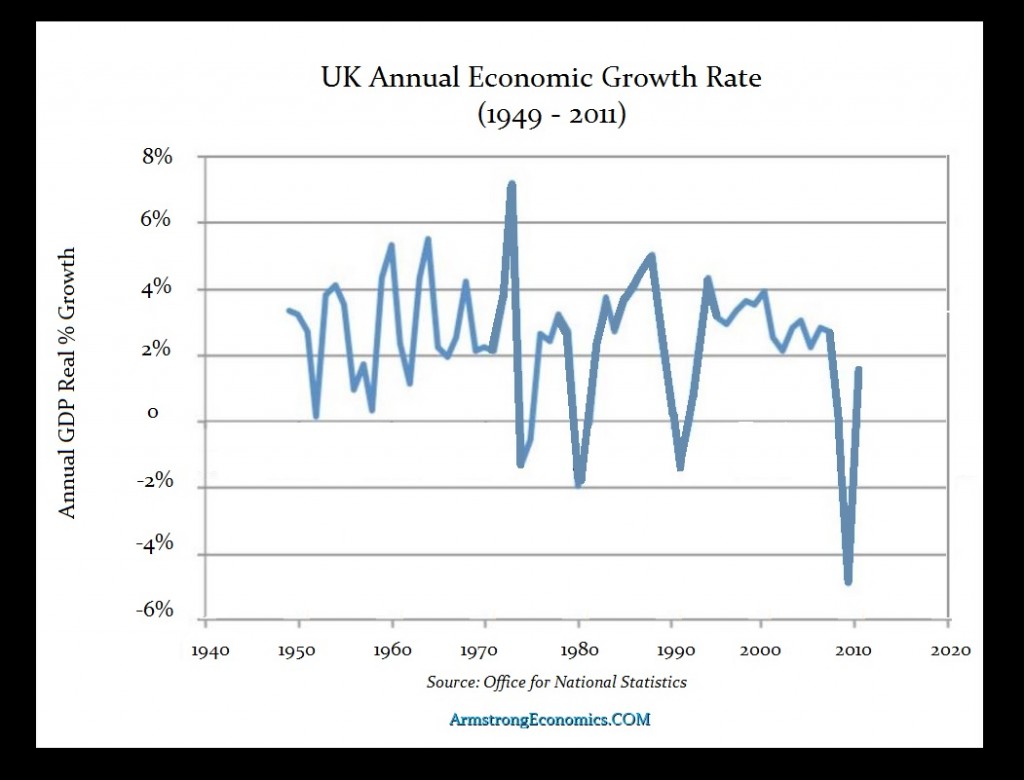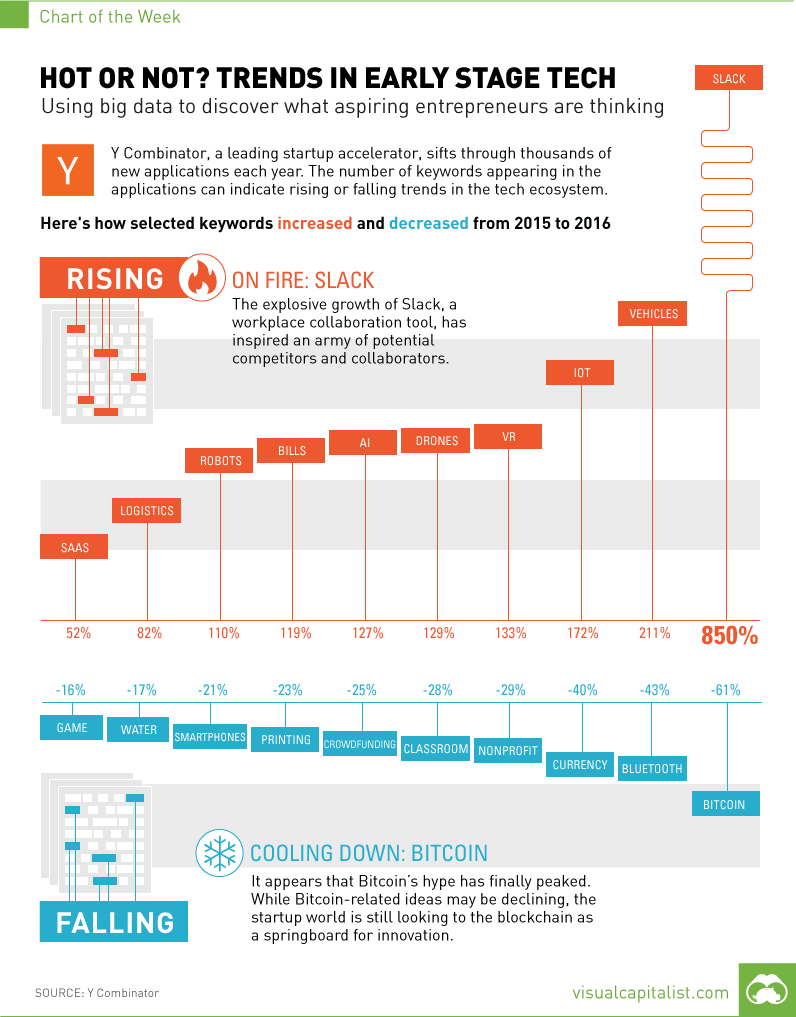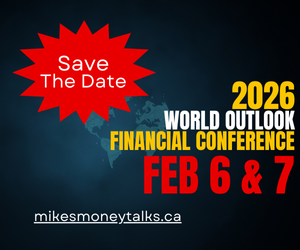Timing & trends

The Guardian headline is supporting government propaganda that 9 out of 10 economists warn of a dire future if Britain exits the EU. For a newspaper who published Snowden, I would expect a lot more integrity on this issue. The Guardian is reporting propaganda on a grand scale. They reported that “Some 72% [of economists] said that a vote to leave would most likely have a negative impact on growth for 10-20 years.”

The propaganda implies that economic growth in Britain has benefited from the EU single market since it joined in 1973. Let us expose the lies and corruption propagated by this pool of economists. Using the government’s own statistics from the Office for National Statistics, annual economic growth for Britain peaked BEFORE it joined the EU and has been declining ever since. This forecast that leaving the EU will have a negative impact on British economic growth is clearly a bunch off lies. Annual economic growth for Britain has fallen ever since it joined the EU in 1973. Each rally produced a lower economic growth peak.

 This is the end of Britain if it remains in the EU and the media will not tell the truth or expose what is going on all to save the jobs of bureaucrats at the expense of their own families (feel free to forward this article to everyone). The British pound peaked against the dollar in 1864. It has been a bear market long-term. If the pound simply now closes below 14600 for 2016, it will fall to make new historic lows well under par to the dollar seen back in 1985.
This is the end of Britain if it remains in the EU and the media will not tell the truth or expose what is going on all to save the jobs of bureaucrats at the expense of their own families (feel free to forward this article to everyone). The British pound peaked against the dollar in 1864. It has been a bear market long-term. If the pound simply now closes below 14600 for 2016, it will fall to make new historic lows well under par to the dollar seen back in 1985.
Economists are notoriously incapable of forecasting the future. Larry Summers publicly admitted on Bloomberg that they are incapable of forecasting anything. I think they would have a far better chance of consulting a palm reader than a mainstream economist. If they cannot forecast the future, all they do is mouth whatever the government pays them to do. I have stated it before, when I was asked by the government back in 1985 to effectively “save the world” it was clear, they have such hearings only as a dog and pony show. The government then stands up and does what it wanted to do anyway and pretends they consult experts.
…also more from Martin: The Dow & The Confusion

There are many ways to get a pulse on the startup scene to see what is trending. For example, one could look at the sub-sectors getting the most money from venture capitalists. The more deals and money hitting a sub-sector, the more it could be on its way up the ladder.
However, perhaps there is another angle that can tell us something, even if it’s simply confirming an already-held suspicion about trends in early stage tech. What are the entrepreneurs in the trenches doing? What are they focusing on, and how is that a change from previous time periods?
BIG DATA FROM Y COMBINATOR
Y Combinator, arguably the most prominent startup accelerator on the planet, has indulged us on this hunch. Using the thousands of applications they get each year from aspiring entrepreneurs, they’ve had the foresight to methodically break them down by keyword to potentially show us trends within the pitches by startup founders.
For a wonderful post that breaks this all down, go to the company’s The Macro blog, which discusses many of these trends over the course of years in great detail.
That said, we decided to piggyback onto this interesting data set with a slightly different approach.
METHOD TO THE MADNESS
While the results of the keyword analysis of Y Combinator applications included many meaningful keywords, it also was cluttered with less meaningful pieces of noise. As an example, between 2015 and 2016 applications, there was a 204% increase in the use of the word “firms”. This doesn’t seem to tell us anything significant about the startup world, especially since it only went from 0.3% to 0.8% in actual usage within the scope of all applications.
To combat noise, we took the more subjective approach by identifying keywords that were more concretely associated with sub-sectors or trends. The mention of the term “IoT” in an application, for example, is more telling and suggests that an entrepreneur is pitching a startup idea related to the Internet of Things to the accelerator. More mentions of “IoT” in pitches means that ideas on the “IoT” are top of mind for aspiring entrepreneurs.
WHAT’S HOT IN EARLY STAGE TECH?
Using the above subjective methodology, here are the increases and decreases over the last year that stood out the most to us:
The word “Slack” was used 850% more often in 2016 applications, clearly related to the popular workplace collaboration tool of the same name. Slack’s explosive growth has rippled through to the startup world, likely inspiring an army of potential competitors and collaborators in the wake of their success.
Other emerging trends that picked up steam in recent applications: virtual reality (“VR”), artificial intelligence (“AI”), internet of things (“IoT”), and “drones”. The 119% increase in the usage of the word “bills” also points to the recent attention on the fintech space.
The mention of “SaaS” (Software as a Service) also increased 52%, as it has become a preferred business model by venture capitalists.
WHAT’S NOT
The largest decrease of all terms used was that of “Bitcoin”, which dropped 62% from one year to the next. The cryptocurrency has been a popular developer target for years, but the rush to take it mainstream may now be losing steam. The world’s top performing currency in 2015 has been called dead many times before, so it is certainly no stranger to adversity.
The word “nonprofit” was also used 29% less, which may point to the recent pressure for startups to offer a more foreseeable potential return on investment for investors. The ecosystem isn’t as frothy as it once was, and nonprofit ideas may have taken a temporary tumble as a result.
“Crowdfunding” has also dropped more off the radar, receiving 25% less mentions.

 “Consider the desperate measures the four most powerful central banks have taken this year to push their artisanal money policies to the limit, keeping markets, banks and (in their minds only) economies afloat through artificial manipulation, stimulation and value fabrication.
“Consider the desperate measures the four most powerful central banks have taken this year to push their artisanal money policies to the limit, keeping markets, banks and (in their minds only) economies afloat through artificial manipulation, stimulation and value fabrication.
This year’s central-bank interventions have exhibited more of a bipolarity than ever before. Speeches indicate one view one minute, another the next. What is said publicly for global consumption and privately for national intake varies. Infighting is escalating within their hallowed walls at monetary-policy meetings. The Federal Reserve is trying to keep it all together, but cracks in the façade of the stability it is selling are growing wider and appearing with greater frequency. Volatility can be contained intermittently, not forever”
…related: Yet ANOTHER Billionaire Warns About Coming Chaos … Maybe There’s Something to This Trend?

Dr Michael Berry Ph.D talks to Michael Campbell about Federal Reserve insider talk. Helicopter money, the G-7 meeting, the US raising rates while everyone else is dropping them and forced inflation. About Federal Reserve head Janet Yellen’s latest promise to raise rates – the implications and what you can do to protect yourself.
The gold market has record volume this week – and dropped $40 – should golf investors be worried or is it a good buying spot – Victor Adair with Michael


 1. Get Ready To Bow To Canada’s Aristocratic Ruling Class
1. Get Ready To Bow To Canada’s Aristocratic Ruling Class
Frank Herbert warned us that “Governments, if they endure, always tend increasingly towards aristocratic forms. No government in history has been known to evade this pattern”. We’ve gotten to that point in Canada where the entire function of Government is to act exclusively in the interests of the ruling class. Recent examples….
2. A Crisis Unlike We Have Seen In Human History
Will this implode tomorrow or next week or next month? Who’s to say? What can be said is this: it is happening – your wealth is being drained at this moment. The central planners are absolutely terrified of something, otherwise, the continual “emergency” “secret” meetings would stop.
3. The Dow & The Confusion
by Martin Armstrong
“There is ABSOLUTELY NO INDICATION yet that we are in a bearish trend poised to break last year’s low in the Dow. Another retest of support – YES.”













